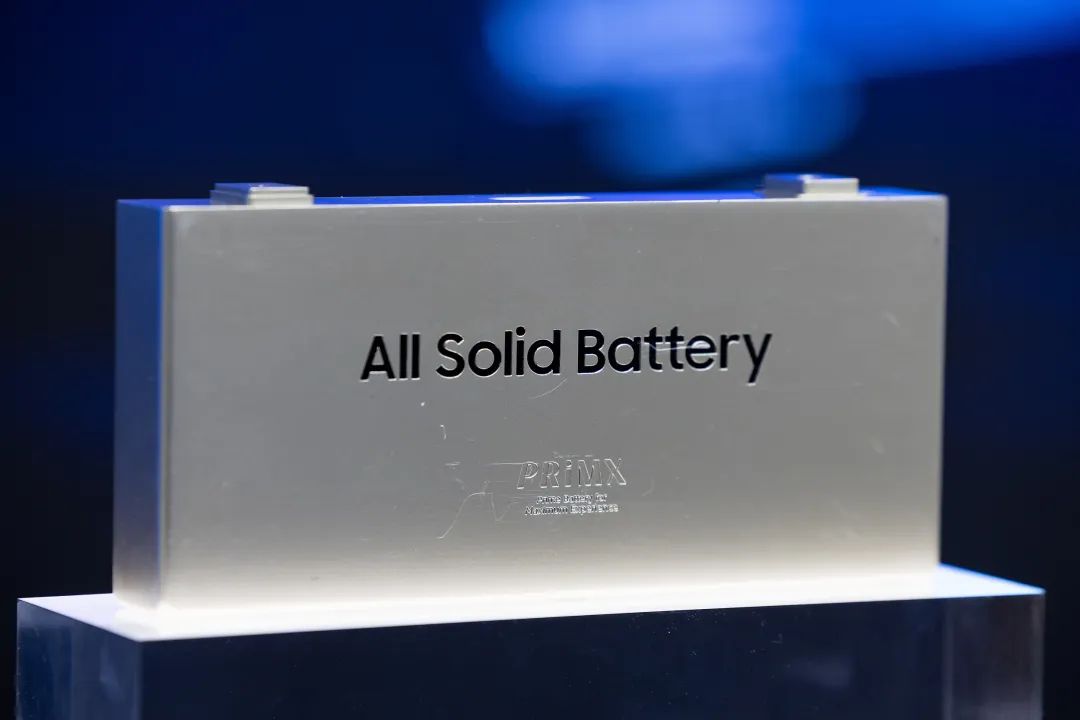Blog
Exploring the Future of Solid-State Batteries: Advantages, Applications, and Industry Impact

With the widespread application of battery technology, the demand for battery performance has been increasing, especially in terms of safety and energy density. Solid-state batteries, as an emerging technology, are gradually becoming a focal point in the industry due to their unique advantages.
What Are Solid-State Batteries?
Solid-state batteries are a type of battery that uses solid electrodes and solid electrolytes. Although most "solid-state batteries" are still in the transitional phase from liquid to solid, they have already demonstrated significant advantages.
Classification
Based on the liquid content in the electrolyte, solid-state batteries can be categorized as follows:
- Semi-Solid-State Batteries: Liquid content of 5-10wt%.
- Quasi-Solid-State Batteries: Liquid content of 0-5wt%.
- All-Solid-State Batteries: Liquid content of 0wt%.
Structure of Solid-State Batteries
Compared to traditional liquid batteries, the main differences in solid-state batteries lie in the electrolyte and separator:
- Electrolyte: Solid-state batteries use solid electrolytes, avoiding issues like leakage and corrosion associated with liquid electrolytes.
- Separator: The role of the separator is eliminated due to the presence of solid electrolytes, reducing the internal complexity of the battery.
Working Principle
The working principle of solid-state batteries is similar to that of liquid batteries, both relying on the flow of electrons between the positive and negative electrodes to generate current. The difference lies in the more advanced materials and structure of solid-state batteries:
- Negative Electrode Materials: Transition from graphite to lithium metal anodes.
- Positive Electrode Materials: Evolution from high-nickel ternary materials to higher-performance materials.
- Separator: Transition from traditional separators to separator-free designs.
Advantages of Solid-State Batteries
- Temperature Adaptability: Solid-state batteries perform stably under extreme temperatures, withstanding both high and low temperatures.
- Fast Charging: Due to their high-temperature resistance, solid-state batteries support faster charging speeds.
- Long Lifespan: Solid electrolytes age more slowly, extending the battery's lifespan.
- Flexible Design: Solid-state batteries can be designed in various shapes, making them suitable for a wide range of devices.
Applications
Solid-state batteries have broad application prospects, primarily in the following areas:
- New Energy Vehicles: Offering higher energy density and safety, solid-state batteries are gradually achieving commercial application.
- Consumer Electronics: In devices such as smartphones and tablets, the high safety and energy density of solid-state batteries are highly valued.
- Energy Storage Systems: The high safety and energy density of solid-state batteries make them an ideal choice for energy storage systems.
- Drones and eVTOL: The high performance of solid-state batteries meets the stringent requirements of these fields.
- 3C Digital Products: With technological advancements, the application of solid-state batteries in high-end digital products is gradually increasing.
Conclusion
With their exceptional safety, energy density, and long lifespan, solid-state batteries are becoming a new favorite in the battery industry. As technology continues to mature and costs decrease, solid-state batteries are expected to play a key role in the future energy sector, driving industry innovation and transformation.
- Next:How to choose the best battery for floor cleaning machines: Expert Guide
- Previous:OTS LiFePO4 Batteries vs DIY LiFePO4 Batteries: Key Differences You Need to Know
Contact Details
Lithium LiFePO4 Batteries and Lithium LiFePO4 Cells Supplier - LiFePO4 Battery Shop
Contact Person: Miss. Elena Wang
WhatsApp : +8615263269227
Skype : +8615263269227
WeChat : 15263269227
Email : info@lifepo4batteryshop.com
All Products
Certification
Customer Reviews
- I have fond memories of our meeting in Shanghai with LiFePO4 Battery Shop Elena. Your company left a strong impression on me with its impressive growth and professionalism. We both value straightforwardness and honesty, which I believe are the most important qualities in any partnership. I am confident that we can build a successful collaboration based on these shared values. —— Robert from USA
- I've been working with LiFePO4 Battery Shop for years, and their reliability is unmatched. While other suppliers frequently change sales teams, LiFePO4 Battery Shop has consistently provided exceptional service with a stable team. Their commitment to quality and customer support truly sets them apart. —— Henry from Australia



